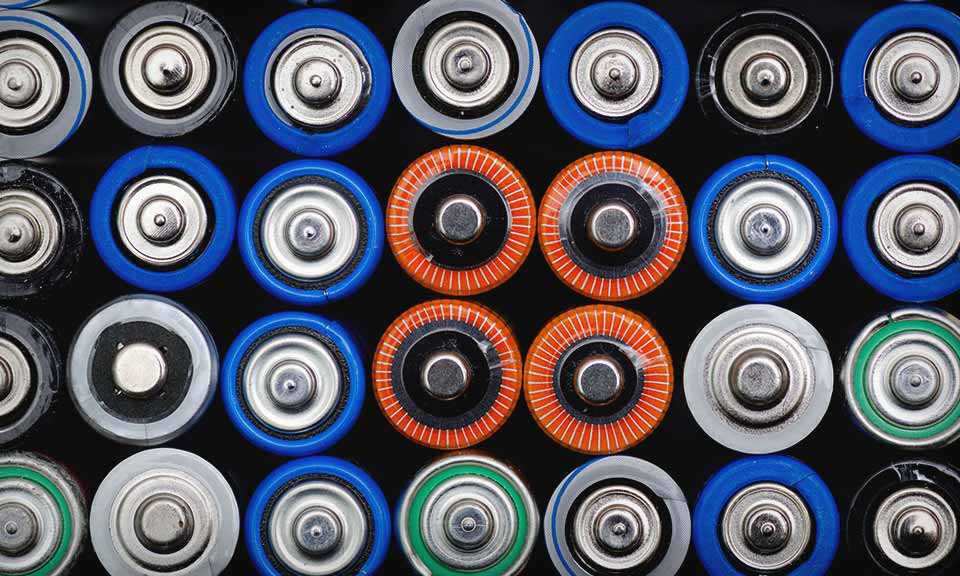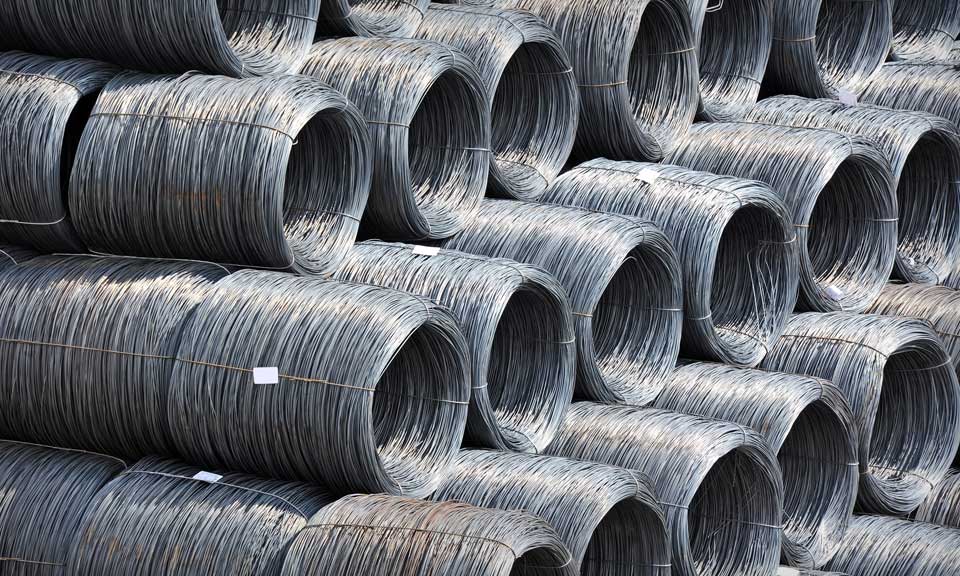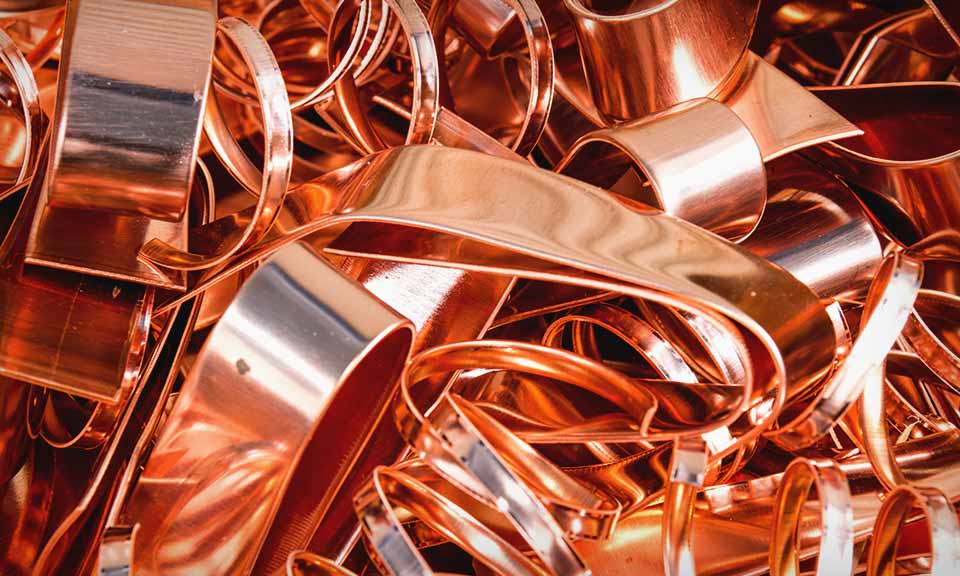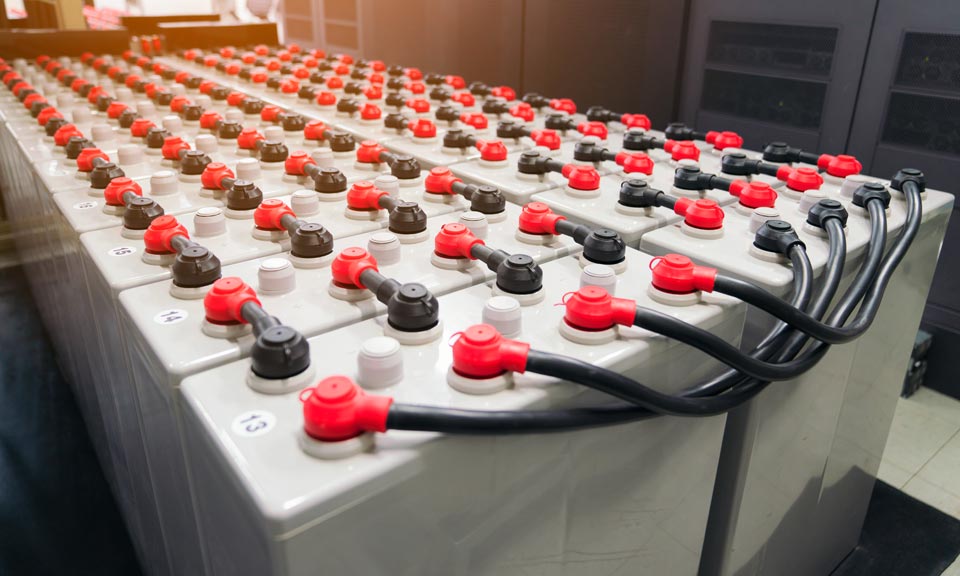FEATURE: Black mass recycling emerges as critical component in Europe's battery supply chains

Europe is experiencing a wave of investment in battery recycling capacity as automakers and battery manufacturers seek to offset the anticipated global shortfall in critical metals such as lithium, nickel, cobalt and copper.
With around 50 new battery production plants set to enter production by 2030, many European battery manufacturers are adopting a holistic approach across the entire battery technology chain to ensure they have the materials required to meet an anticipated surge in demand.
In addition to securing offtake agreements and reducing the material intensity of their battery chemistries, many European battery producers and automakers are seeking to cut resource consumption and establish a closed-loop recycling of battery raw materials.
When batteries are manufactured or reach their end of life, production offcuts or used batteries can be collected, dismantled, shredded and processed to produce black mass, from which critical metals including lithium, nickel, cobalt and manganese can be extracted.
The production of black mass has become increasingly important as a supplement to virgin material supply and is critical to strengthening Europe's battery supply chains.
Commissioned in May 2022, the Hydrovolt battery recycling facility, a joint venture between Norway-based aluminum producer Norsk Hydro and Sweden-based battery manufacturer Northvolt, in Fredrikstad, Norway is currently Europe's largest, capable of processing can process 12,000 mt/year of EV battery packs equivalent to around 25,000 electric vehicle batteries.
Hydrovolt said it is considering expanding its European recycling capacity, with a long-term target to recycle approximately 70,000 tons of battery packs by 2025 and 300,000 tons of battery packs by 2030, equivalent to approximately 150,000 EV batteries in 2025 and 500,000 in 2030.
"The metals used in battery production are finite, but by substituting raw materials mined from the Earth with recycled materials, we can not only cut the carbon footprint of batteries but enable the sustainable long-term use of li-ion battery technology," Northvolt Chief Environmental Officer Emma Nehrenheim said.
Europe's other major recycling facilities include Umicore's battery recycling plant in Hoboken, Belgium, capable of processing 7,000 mt/year of lithium-ion batteries and battery production scrap, equivalent to approximately 35,000 electric vehicle batteries. Building upon this capacity, Umicore recently announced plans to construct a 150,000 mt/year battery recycling plant in Europe by 2026.
"This will be the biggest battery recycling plant in Europe and will incorporate proprietary metal extraction technologies developed by Umicore's research and engineering teams," it said.
In addition, Fortum Battery Recycling, a subsidiary of European energy company Fortum, announced on April 27 that it had started commercial operations at its new 3,000 mt/year battery metal recycling facility in Harjavalta, Finland.
Harjavalta is the location of a Norilsk refinery, from where it supplies BASF's gigafactory and the two companies have signed a letter of intent with Fortum to create a battery recycling cluster.
Europe's battery recycling industry is set to expand further with more than a dozen additional projects earmarked for completion before the end of 2026.
Most notably, on May 9 Glencore and Li-Cycle announced plans to build a battery recycling plant in Sardinia, Italy capable of processing approximately 50,000-70,000 mt/year of black mass with commissioning expected to commence around late 2026 or early 2027.
Li-Cycle is developing three additional recycling facilities in Europe as the company seeks to replicate its successful North American model with a strategically located pre-processing spoke network supplying a centralized post-processing hub.
In support of this strategy, the company plans to commission a 30,000 mt/year lithium-ion battery recycling spoke in Germany's Magdeburg region by mid-2023 with a 10,000 mt/year lithium-ion battery recycling facility in Harnes, France due to start operations in 2024.
"Li-Cycle's expansion in Europe aligns with our modular rollout strategy, as we replicate our successful North American model, which mirrors customer demand and commercial contracting," said Li-Cycle co-founder and Executive Chair, Tim Johnston.
In total, the current pipeline of European battery recycling projects suggests approximately 67,000 mt/year of new capacity set to join the market by the end of 2023, equivalent to the processing and recycling of more than 300,000 EV batteries/year.
The accelerating rate of expansion in European battery recycling capacity comes amid supply concerns and soaring demand projections. The global lithium market alone could see a deficit of up to 220,000mt by 2030 even if all projects in development are executed on time, according to forecasts released by S&P Global Market Intelligence in January 2022.
While the black mass market is also growing exponentially it remains unclear exactly how much is going to be open on the free market for trading, although large raw materials traders have already entered in to the trading space.
Platts, part of S&P Global Commodity Insights, launched nine daily Black Mass price assessments on April 17 aimed at bringing greater transparency to pricing of the battery raw materials market.
The initial assessment on the black mass payables for Ni-Co black mass EXW Europe, cobalt payables were assessed at 60% basis European cobalt metal 99.8% on May 16 unchanged from the previous week.
Nickel payables were assessed at 65% basis LME nickel on May 16 unchanged on the week.
The EXW lithium payables were assessed flat at 0% on May 16 and have been at this level since the price was launched on April 17.
Any value for the lithium has been added on to either the cobalt or nickel price and not yet price on its own value. The reason for this is because pyrometallurgical plants do not have the capabilities to recover lithium and therefore it essentially treated as a waste and has no value.
Hydrometallurgical plants have the capabilities to recover the lithium component and therefore black mass sellers charge for its content.
While much of the scrap and end of life batteries in the European market will be high-nickel cathodes much of the investments are focused on the hydrometallurgy methods, so the value of recovering the lithium could be exponential for recyclers.
Amid a looming global deficit for critical raw materials like lithium, cobalt, nickel and copper, the expansion of the black mass market is set to accelerate as battery manufactures seek to strengthening their critical minerals supply and reducing the carbon footprint of their supply chains.

News
China's property sector has been in shambles over the past few years and remains the biggest drag on domestic steel demand. The property market has trended downwards in the first quarter of 2024. With no major recovery signs in new home sales, China’s new home construction starts are likely to remain on the downwards trajectory in the foreseeable future. The slowing property sector has triggered debt risks locally, leading Beijing to order local governments to downsize infrastructure projects, which has also undermined the growth momentum in infrastructure steel needs, adding to the demand slump. Click here to see full-size image

News
Plant will have an output of 80,000 mt/year Syrah delivered 10,000 mt of graphite fines to PT Indonesia BTR Chinese graphite exports "extremely limited" over Jan-Feb Chinese anode material producer BTR New Material Group is expected to start up an 80,000-mt/year active anode materials plant at Indonesia's Morowali Industrial Park, Central Sulawesi province, by the end of 2024, Australia-listed graphite producer Syrah Resources said April 8. The $478 million AAM plant will process synthetic graphite, supplied by Syrah and other suppliers, into anode materials. At the same time, Australia's Evolution Energy Minerals, in which BTR owns a 9.9% stake, is expected to supply 100% of the fine flake graphite produced from its Chilalo project in Tanzania to BTR for three years. Syrah said on the same date that it delivered a 10,000-mt break bulk shipment of natural graphite fines from its Balama graphite operation in Mozambique to PT Indonesia BTR New Energy Materials in Indonesia. The future of Syrah's Balama operation, which has a production capacity of about 350,000 mt/year, will be determined by the impact of China's export controls on the global market. China implemented export controls on natural graphite and its products, effective Dec. 1, 2023 . Citing January-February data from China's General Administration of Customs, "natural graphite fines and coarse flake exports were extremely limited," Syrah said. "Purified spherical graphite exports were 25%-40% of the 2023 monthly average and limited to South Korea." The 10,000-mt cargo to BTR is Syrah's "first large volume natural graphite sale to a battery supply chain participant destination outside China," Syrah said, following a trial shipment made in the first quarter of 2024. The delivery of the graphite cargo to Indonesia comes after Syrah signed a six-year deal to supply natural graphite fines to South Korea's Posco Future M in March . Data from S&P Global Commodity Insights showed that Platts assessed spot prices of natural flake graphite at $465/mt CIF Northeast Asia on April 5, flat from the session before, and spherical graphite at $2,060/mt CIF Northeast Asia, also unchanged from the previous session. Platts Connect: News & Insights (spglobal.com)

News
More processing of CAM, battery precursors for qualification with OEMs Center to focus on reducing CAPEX, OPEX; improving metal recovery rates Company to implement processes at commercial scale at planned Teesside recycling hub UK-based clean technology company Altilium has completed the expansion of its cathode active materials and EV battery recycling innovation center in Plymouth, it said April 5. The site has been expanded from 10,000 sq ft to 18,000 sq ft with the staff headcount increased to 70, it said in a statement. Without disclosing specific volumes, the company said the expansion would allow it to process larger volumes of CAM and battery precursors for qualification with OEM’s and battery cell manufacturers. Work completed on the facility includes a major electrical upgrade required to power the recycling facility, start-up EV battery recycling test bed and equipment procurement. Altilium said the innovation center, known as Act 2, would focus on reducing CAPEX and OPEX of future plants and improving the rates of metal recovery, particularly for lithium. The company plans to implement these processes at its planned Teesside recycling hub (Act 4). Announced in November, the Teesside facility, designed by engineering consultancy Hatch, will have the capacity to process approximately 50,000 mt/year of black mass. When batteries are manufactured or reach their end of life, production offcuts or used batteries can be collected, dismantled and shredded to produce black mass, from which critical metals including lithium, nickel, cobalt and manganese can be extracted. The plant will comprise two processing facilities: a chemical plant producing 95,000 mt/year of battery precursors including lithium carbonate and nickel sulfate, and a cathode active material plant producing 30,000 mt/year of CAM. The company said the facility, once fully operational, will meet around 20% of the UK’s CAM requirements. The recycling of black mass has become increasingly important as a supplement to virgin material supply, as well as to reduce the carbon footprint in the battery supply chain. In addition to its Teesside battery recycling plant, Altilium is also retrofitting its existing SX-EW hydrometallurgy plant in Bulgaria to produce battery intermediates MHP and lithium sulfate. The plant is being upgraded to process up to 8,000 mt/year of black mass, with commercial operations expected to start this year. On Feb. 22, SQM Lithium Ventures said is had increased its investment in Altilium by $9.43 million, bringing its total contribution to $12 million. The funding, done through SQM's investment arm SQM Capital Ventures, was part of the Series A financing round. Altilium’s Series B financing, which will focus exclusively on the Teesside project, is expected to launch during 2024, with the plant itself expected to take around 36 months to construct. Platts, part of S&P Global Commodity Insights, assessed cobalt payables for Ni-Co black mass ex-works Europe at 52% basis European cobalt metal 99.8% April 2, down 3 percentage points on the day and on the week. Platts assessed nickel payables at 52% basis LME nickel April 2, also down 3 percentage points on the day and on the week. Platts Connect: News & Insights (spglobal.com)

News
To build on EU's Critical Raw Materials Package Support, accelerate implementation of sustainable critical minerals projects The EU, US and other countries in the Minerals Security Partnership (MSP) have launched the MSP Forum to expand cooperation on critical raw materials required for the global green and digital transitions, the European Commission said in an April 5 statement. The MSP partners were joined by Kazakhstan, Namibia, Ukraine and Uzbekistan to launch the platform, it said, which will be co-led by the US and the EU. The EC added that the recently announced Critical Raw Materials Club would become a full part of the MSP Forum, bringing together resource-rich countries and countries with high demand for the resources. “This will create a greater, more ambitious joint initiative linked to the Minerals Security Partnership, where the European Commission represents the EU,” it said. The MSP Forum aims to build on the EU's Critical Raw Materials Package adopted in March 2023 and will form a project group to support and accelerate the implementation of sustainable critical minerals projects, the EC said. The forum will also create a policy dialogue to identify policies for boosting sustainable production and local capacities, facilitate regulatory cooperation to foster fair competition, transparency and predictability and promote high environmental, social and governance standards in critical raw material supply chains, the EC said. “The MSP Forum is a cornerstone of the EU’s strategy to secure a more sustainable supply of critical raw materials,” EC Executive Vice-President and Commissioner for Trade Valdis Dombrovskis said, adding that it would be key to reducing vulnerabilities and achieving the green and digital transition in Europe and globally. “With this global initiative, we want to make sure that international cooperation is up to the task of increasing investment, diversifying supply chains and bringing sustainable benefits to all parties,” he said. Critical raw materials are needed for numerous technologies in the energy transition, resulting in high demand, although supply is hindered by geopolitical, environmental and social risks and challenges. The EC estimates that EU demand for lithium used in electric vehicle batteries and energy storage will increase twelve-fold by 2030. Platts, part of S&P Global Commodity Insights, put both battery grade lithium carbonate and hydroxide assessments at $14,500/mt CIF Europe on April 4, both stable on the day and on the week, and down from $15,800/mt on Jan. 2. The EC said any partners that were ready to commit to the key MSP principles would be allowed to join the MSP Forum, noting that these principles included diversification of global supply chains and high environmental standards, good governance and fair working conditions. The co-leaders and current MSP partners plan to reach out to prospective members in North and South America, Africa, Asia and Europe to expand the Forum’s participation and start working within the project and policy dialogue groups. Besides the EU and US, the current MSP partners are Australia, Canada, Estonia, Finland, France, Germany, India, Italy, Japan, Norway, South Korea, Sweden and the UK. EU, Uzbekistan sign MOU In a separate statement, the EC announced that the EU and Uzbekistan had signed a memorandum of understanding to launch a strategic partnership on critical raw materials, which it said “underscored the partners' shared commitment to enhance cooperation in the field of critical raw material.” Under the partnership, the EU and Uzbekistan will work on establishing an operational roadmap with concrete implementation actions, the EC said. The partnership will focus on cooperating on the integration of sustainable value chains, increasing the resilience of supply chains and enhancing the transparency of measures related to investments, operations and exports. It will also focus on the mobilization of funding for projects resulting from the partnership and the development of infrastructure required for the development of value chains, as well as on cooperation to achieve sustainable and responsible production and sourcing of critical raw material, on research and innovation, and on building capacity to enforce relevant rules and on developing training and skills. Platts Connect: News & Insights (spglobal.com)